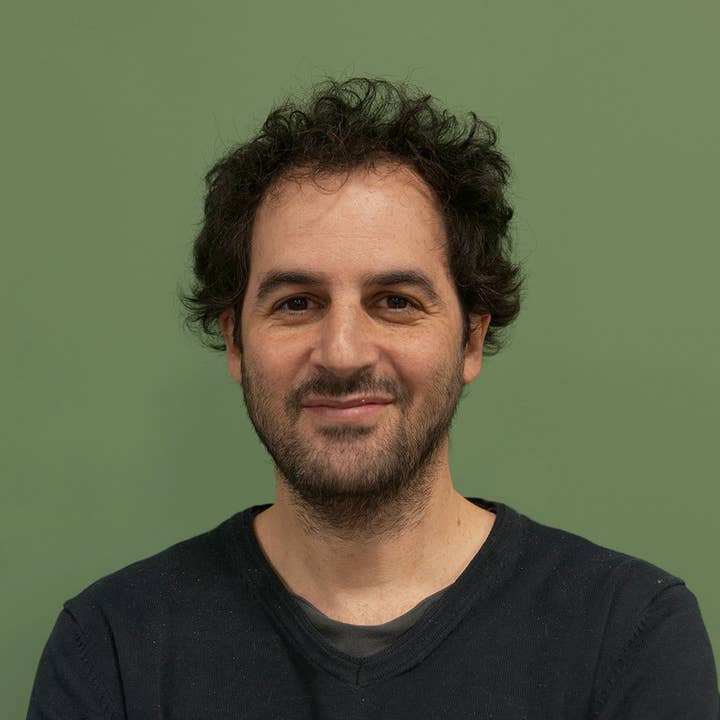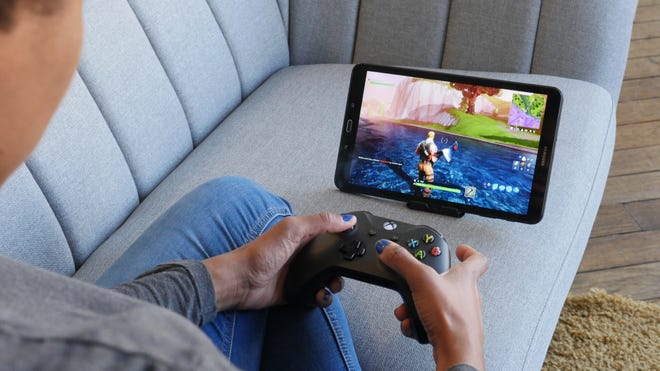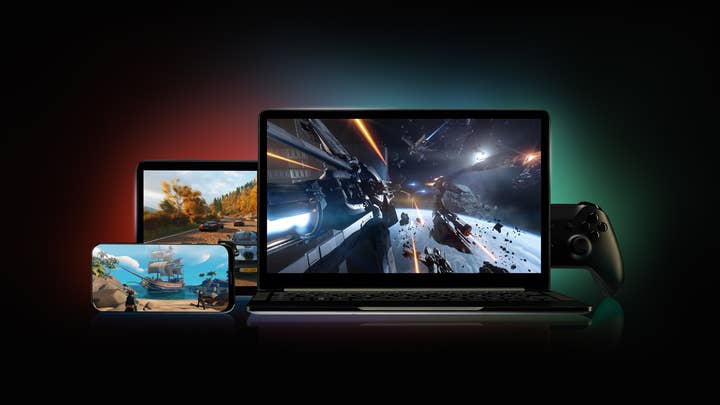Does French streaming platform Shadow have its head in the clouds?
Co-founder Emmanuel Freund on opening up games to more people, the tech side of things and Google's entry into the space
Once again, streaming is part of the games industry's future. Just under ten years after OnLive first launched, the likes of Microsoft and Google are betting big on cloud tech with their xCloud and Stadia platforms.
But they aren't the only players in this new wave of companies looking to beam content to any and all devices via the internet. French firm Blade was founded back in late 2015, with its Shadow streaming platform rolling out two years later. Along the way, it has attracted the tidy sum of over $100m in funding, too, including a $33m investment announced last week.
Unlike its competitors in the space, Shadow is a high-end computer in the cloud. Though it's being marketed as a games product, consumers can use it for regular applications like Word and Photoshop -- paid for by a monthly subscription service. As a result, users can boot up any game they want via platforms like Steam or GOG.

"We are streaming a computer, which means users aren't limited to a catalogue or a library of games, or some usage that the company has predefined," says co-founder Emmanuel Freund, who has just stepped down as CEO to have a more hands-on role.
"After that, we also have the technology. We're the only company to master this level of quality, with the lowest latency in the world."
The issue that arises time and time again with streaming is that data can only be transmitted so fast. While beaming music or video over the internet is perfectly feasible, there are literal physical limits on how quickly a remote data centre can respond to a button press from a user.
One way of getting around this is what Google is attempting with Stadia, with the search giant turning to machine learning to predict what a player will do before they do it -- something the company has termed 'negative lag'. Freund says that Shadow has a level of latency so low that users can even play VR using the tech.
"A lot of people have tried the prediction-style solution to avoid latency, but we don't need that actually. We are using Shadow with pro players who can testify they can't see the difference between our tech and a local PC," the co-founder says.
"You don't need to have PC gamers or console gamers, you just have gamers. That's where we want cloud gaming and streaming to go"
"We are at the level with lag where people can use virtual reality, which is not forgiving of any latency, of course, otherwise the user is sick. They can use VR even with a connection with 20mb/s. For three years, we have been working on the encoding side [and] the decoding side, and we know what creates latency. We are able to grab the image and encode it from the GPU in 9ms. It doesn't need to be lower than that. If you're playing an online game, when you have 15ms ping, that's acceptable. If you have nine, it doesn't change the feeling of the game. Again, we've tested that with a lot of people on a lot of games."
At the end of October during a Paris media event, Blade announced changes to Shadow's pricing structure. Where before the service cost a sizeable £26.95 each month, there are now three tiers for consumers to choose from, with the lowest costing just £12.99. The company says that this is partly in recognition of the fact that competition is coming and that being close to the industry standard of £9.99 makes sense.
"Suddenly some big players are telling the market that cloud gaming is coming with a lot of money and that's great," Freund explains.
"If they are doing good things, it will help us go from an industry of old computers to cloud gaming and people realising that this could be something; but we are far away from that right now. When you look at what the competition is offering, it's normally limited in both the number of games and in quality. Our goal is to make sure that the quality is always the highest it can be and tell people it's not a technology that will mimic your computer one year ago -- it's a technology that can open a whole new world.
"The idea of the £12.99 pricing is to tell people that of course there are other companies doing a catalogue that will be around £9.99 each month with, let's say, 100 games. Instead of that, people can spend a little bit more and have a computer that's able to run any game that is available, including free-to-play titles which are some of the most played [games] in the world. They have both and an unlimited number of games."

One of the apparent advantages of streaming services is that they lower the barrier to entry for video games. Where before, consumers would have to splash out on a console or a PC to play games on those platforms, streaming makes it possible to access this content on a greater variety of devices.
"If you think about that, streaming will remove the need to buy a gaming console or PC so the market expands from 300 million console gamers to the two billion people who are using smartphones. Yes, it's a way to expand the market to people that are not used to playing games," Freund says.
"With Shadow, we can also go further. It's not creating gamers, but you can also make sure that content is available wherever people want it. You don't need to have this frontier between PC and console; you don't need to have PC gamers or console gamers, you just have gamers. That's where we want cloud gaming and streaming to go -- to make sure that you can just play your games in the best way possible with any equipment."
"If we want people to use this technology, they should feel it's the exact same as a computer"
Up until now, Shadow has been running on seven data centres; four in the US, two in France and another in Holland. This is something that Freund says has limited the company. Right now it boasts just 70,000 users -- far from a huge number -- but he says is the literal capacity of its current infrastructure.
Now the firm has teamed up with French server specialist OVH, which is allowing Shadow to ramp up its global expansion. That includes emerging markets such as India, as well as giant opportunities like China.
"The idea is to be able to scale much faster," Freund explains. "OVH has already built some data centres in India. China is massive so it's an interesting market. We're asking ourselves how we'll address those markets and which partners we'll go with, be it an ISP or a manufacturer. There are a lot of questions and discussions ongoing around that.
"The only thing we'll check is that we should not lose the quality of our service. One of the basic things we are really proud about is to keep the quality level that is higher than everyone else. It's really important. If we want people to use this technology, they should feel it's the exact same as a computer."
Right now, the cloud games market has just a few players. Shadow might have been an early entrant in this new wave of streaming, even beating Google Stadia with some functionality such as seamlessly moving a gameplay session between devices, but its co-founder says it doesn't matter how early you are if you aren't good.
"There are not a lot of players in the cloud gaming space right now. If this can bring a better cloud gaming, perfect," he says.
"I don't know if you know what the first MP3 player device was. They can say they were the first but no-one cares honestly because everyone remembers the iPod. The question isn't whether you were first or not; the question is are people using it - and if not, you probably didn't do things correctly. We shouldn't be saying we were doing cloud streaming before them; we should just say we are better."
He concludes: "I really wish Stadia success. Google not succeeding will just prove to everyone that people are not ready for streaming."

